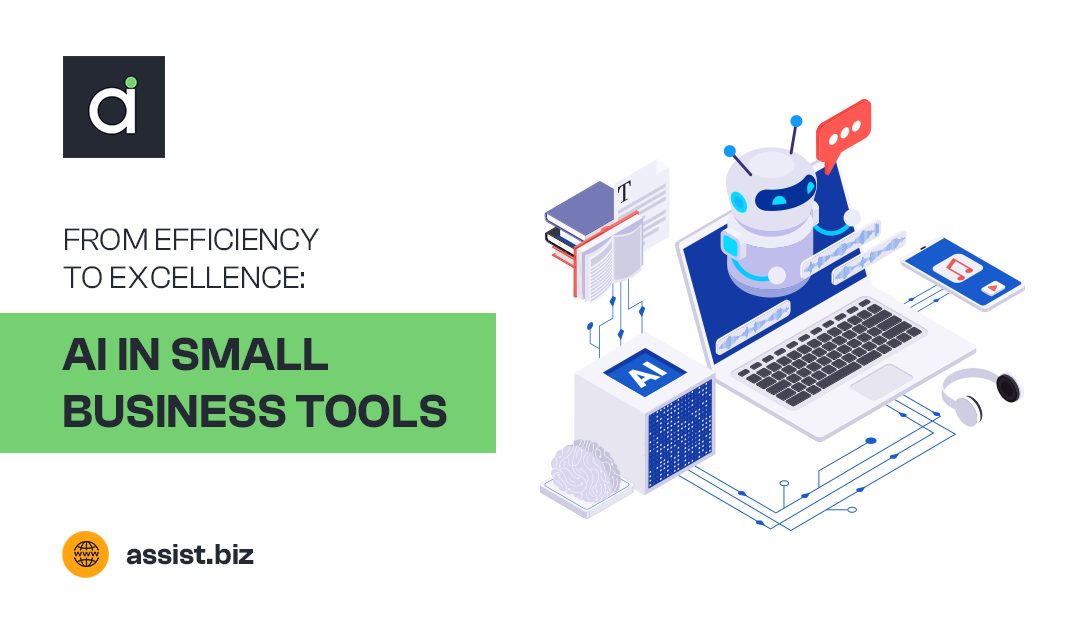The biggest headline in technology in the past year is, of course, how Artificial Intelligence (AI) is fast becoming a reality—or perhaps even a necessity—for many people and reshaping the world as we speak. As companies jump onto the AI bandwagon and join the race to come up with newer versions or applications as fast as we can say “artificial intelligence”, it also means that AI has become accessible to businesses of all sizes, including small businesses.
In fact, the integration of AI into small business tools is emerging as a transformative trend. Automation powered by AI is revolutionising how small businesses operate, including helping them streamline processes, enhance decision-making, and achieve greater efficiency. Let’s look at how the rising prominence of AI in small business software and how automation is changing the game for entrepreneurs.
The Evolution of Small Business Tools
Small businesses have always faced resource constraints compared to their larger counterparts. Challenges such as limited staff and budgets can hinder small businesses’ ability to compete effectively in the market. Most often, entrepreneurs end up having to handle multiple roles themselves, which is not just an inefficient use of their precious time, but may also cause burnout.
Fortunately, the landscape is shifting. As AI technology becomes more accessible and affordable to start-ups or even micro-businesses, small business management software solutions are already available to help them catch up with the big boys.
Traditionally, small businesses relied on manual processes, spreadsheets, and basic software tools to manage operations, handle customer interactions, and analyse data. While these methods are able to do the required tasks, they are time-consuming, prone to errors, and can inhibit the company’s growth. AI-powered apps for small businesses are changing this dynamic by offering intelligent solutions that can handle repetitive tasks, provide data-driven insights and drive innovation.
The Impact of AI Automation
1. Process Automation
Managing repetitive tasks such as data entry and filing of invoices, receipts, payments and other financial documents are time-consuming and error-prone. AI-driven small business software can handle these tasks efficiently, reducing human error and freeing up employees to focus on tasks that increase revenue and profits.
For example, ASSIST, a Digital Archival System, automatically organises documents according to categories, such as Receipts, Invoices, Accounts Payables and Account Receivables, for data retrieval. Users simply use a mobile device to capture an image of the document and send it to ASSIST for digital storage. The system will automatically store the document into its right categories. Such automation can also help small businesses maintain a clear financial picture and make informed decisions about growth strategies.
2. Enhanced Customer Service & Interaction
AI-driven chatbots and virtual assistants are transforming the way small businesses handle customer service. Such small business software can respond instantly to customer inquiries, offer seamless and personalised recommendations and even process orders, including sending order confirmations and following up on support tickets. This not only improves customer satisfaction but also frees up human resources to focus on more complex and strategic tasks.
3. Sales and Marketing Optimisation
AI tools can also analyse customer behaviour and preferences, enabling small businesses to tailor their marketing efforts more effectively. Powerful apps for small businesses are already available that allow entrepreneurs to create targeted advertising campaigns and personalised product recommendations to reach the right audience with the right message.
4. Data Analysis and Insights
Small businesses often struggle to make sense of the data they generate. AI-powered analytics tools can now process vast amounts of information and provide actionable insights into their operations, customers and market trends. By using these predictive analytics, businesses can make informed decisions such as optimising pricing and identifying new growth opportunities.
The Road Ahead
As AI technology continues to evolve, its impact on small business tools will only become more pronounced. The democratisation of AI means that innovation that was previously beyond the reach of small businesses is now available to all. Even companies with limited resources can harness its power to drive growth. The rise of AI in small business tools is not just a trend; it’s a transformational shift that is reshaping the way entrepreneurs operate and compete in a dynamic marketplace while allowing them to focus on tasks that require creativity, empathy and complex decision-making.

Recent Comments